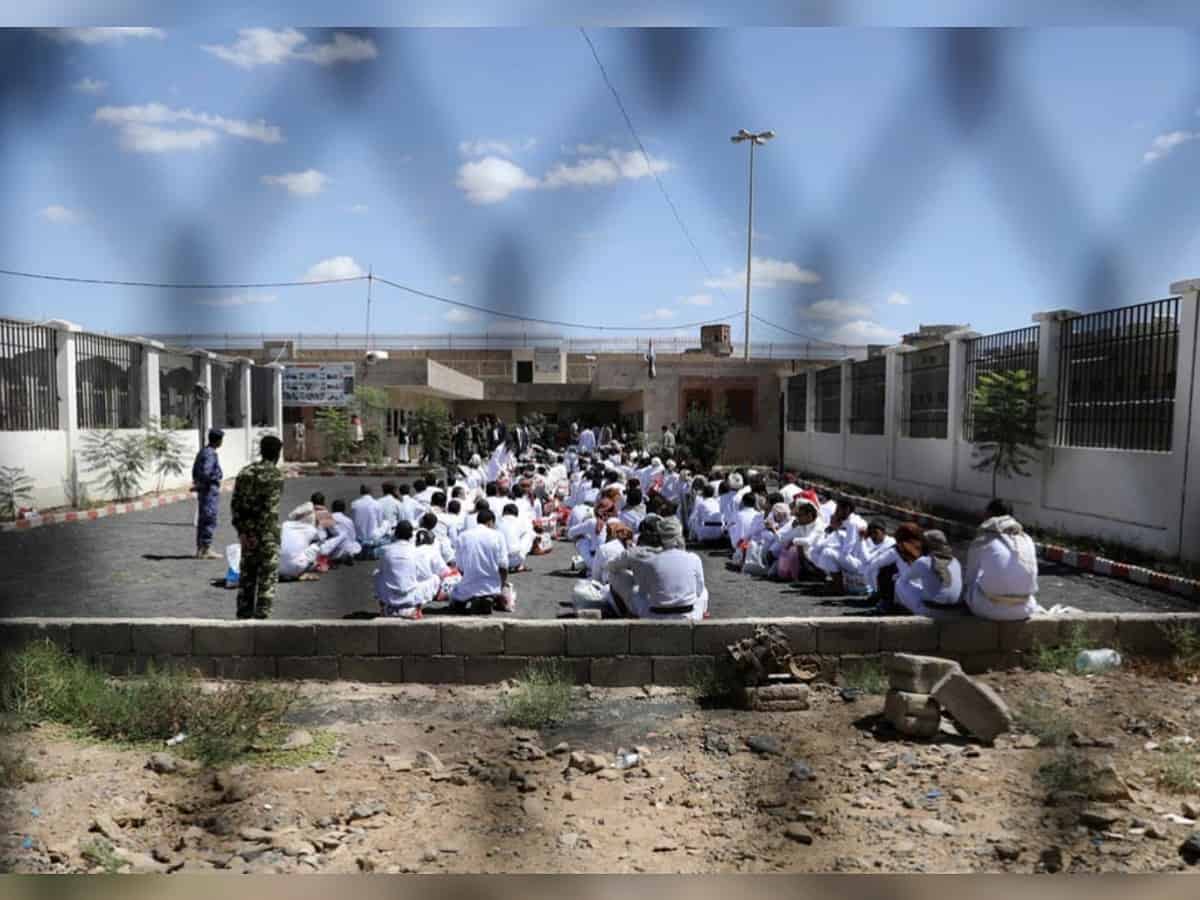
The Iranian-backed Houthi militia had kidnapped 16,804 civilians, since its seizure of power, during the period from September 2014 to the end of August 2022, according to a human rights report.
The Yemeni Network for Rights and Freedoms stated in a report that more than 4,201 civilian abductees, whose information and data have been verified, are still in the prisons of the Houthi militia until this moment.
Among the abductees in the Houthi prisons
- 389 politicians
- 464 activists
- 340 media professionals
- 176 children
- 374 women
- 342 educators
- 512 sheikhs and social figures
- 216 mosque preachers
- 154 academics
- 217 students
Arrest in the Houthi prisons
- 96 cases of arrest of lawyers and judges
- 93 cases of arrest of doctors
- 376 cases of arrest of employees and administrators
- 293 cases of arrest of cleaners and marginalized workers
- 81 cases of arrest of foreigners and refugees
- 78 cases of arrest of merchants
Deaths in Houthi prisons
- 147 cases of liquidation inside prisons
- 282 deaths due to negligence in prisons
- 92 deaths of detainees from heart attacks after they were denied access to the necessary treatment.
- 52 detainees suffered kidney failure and total or hemiplegia as a result of torture and neglect by the Houthi group.
According to the report, more than 98 detainees died a few days after their release from the prisons of the Houthi militia and it is likely that toxic injections were administered to them before their release from the detention centers.
Elderly and sick
Among those abducted by the Houthis are elderly persons over the age of 60, as well as young children under the age of 14, wounded and patients with heart, diabetes, blood pressure, and chronic psychological, neurological and skin diseases.
The report confirmed that “about 1,317 Yemenis are still forcibly disappeared in the prisons of the Houthi militia, including 84 women and 76 children.”
According to the report, the Houthi militia “subjected about 4,012 detainees, abductees and forcibly disappeared persons to psychological and physical torture, using them as human shields and liquidation inside Houthi prisons, of whom 463 cases were taken as human shields.”
The Yemeni Network for Rights and Freedoms called on the international community to pressure the Houthi militia to release all detainees unconditionally.
In the context of the Houthi violations, the Yemeni model Entesar Al-Hammadi, was subjected to beatings and violence in the prisons of the Houthi group, which led to a broken nose bone.
Abductees’ Mothers Association, an umbrella organization representing thousands of female relatives of civilian prisoners of war, said it had received an urgent request from the wife of captive Adel Tariq al-Baydani, who fasted for two weeks to protest his indefinite detention and ill-treatment, to save him from death.
The organization said on Twitter that, “Al-Baydani’s wife pleaded for her husband’s release, citing serious health conditions, and said that the Houthi group threatened the hunger strikers, including the elderly, with transferring them to the prison basement if they did not end the strike.”
Political crisis and human suffering
Yemen has been witnessing great human suffering for more than 7 years as a result of the ongoing war between the pro-government forces backed by an Arab military coalition led by Saudi Arabia on the one hand, and the Iran-backed Houthis, who control several governorates, including the capital, Sanaa, on the other, since September 2014.
The rebels control Sana’a and most of northern Yemen, including the city of Hodeidah on the Red Sea coast, which includes a port that is considered a lifeline for millions of residents in Houthi areas.
The war in Yemen has caused the death of more than 377,000 people, directly or indirectly, and the displacement of thousands in the worst humanitarian crisis in the world, according to the description of the United Nations.
The Special Envoy to Yemen, Hans Grundberg, had announced that the parties to the conflict had responded positively to the United Nations’ proposal for a two-month truce that came into effect from the April 2, 2022, and was renewed after the expiry of the two-month period with the consent of all parties.
While the Houthi militia breached its obligations, including lifting its siege imposed on Taiz governorate, and breached the armistice many times, to increase its violations during the first week of October 2022 by refusing to renew the UN truce.
The United Nations is seeking a permanent cease-fire, in order to begin reviving the course of political dialogue, which has been practically suspended since the signing of Sweden’s agreement on Hodeidah in 2018.



